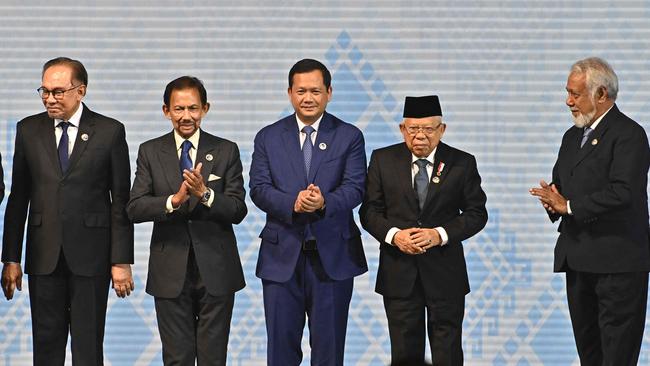
Beijing’s latest round of South China Sea aggression will also be high on the agenda amid continued harassment of Philippines vessels and an incident last week in which Chinese coastguard officers allegedly injured 10 Vietnamese fishermen.
While neither US president Joe Biden nor Indonesian leader Joko Widodo will attend Thursday’s East Asia Summit – both now in their final weeks in office – relations between their respective envoys could be frosty over the US Department of Labor this month citing Indonesia’s China-dominated nickel industry for forced labour.
Meanwhile, Myanmar’s intractable civil war will continue to dominate ASEAN discussions as the country’s military junta pushes to hold elections despite an escalating conflict that has spilled over into neighbouring countries.
If that was not enough, there is China’s recent successful test-firing of an intercontinental ballistic missile into the Pacific Ocean – widely seen as a message to the US and its allies amid heightened regional tensions – and Philippines-hosted navy drills near Taiwan with Australia, Canada, France, Japan and the US.
The Association of Southeast Asian Nations has scarcely witnessed a more tumultuous era since the Vietnam War years, even as it contends with deepening disunity among its members.
While Anthony Albanese confirmed ahead of his trip to Laos on Wednesday that he would meet Chinese Premier Li Qiang on the sidelines of the formal summits this week, it is not clear whether US Secretary of State Anthony Blinken, standing in for President Biden at the talks, will also hold separate talks with Mr Li.
Speaking to reporters in Washington as Mr Blinken made his way to Laos on Wednesday, America’s top Asia diplomat Daniel Kritenbrink said the Secretary of State would raise “a number of PRC (People’s Republic of China) related issues” during his trip, including Beijing’s “escalatory and irresponsible steps designed to coerce and pressure many of the South China Sea claimants”.
China also needed “to stop fuelling the Russian war machine through their support for the Russian defence industrial base, and we’ll continue to take steps together with partners elsewhere, including in Europe, to curb that behaviour going forward”, he added.
Such tough talk is unlikely to be welcomed at ASEAN, which has a reputation for skirting around issues rather than tackling them.
For a multilateral bloc that views itself as central to the maintenance of regional order, ASEAN is looking less and less up to the task.
Its member states can barely agree on how to resolve the ongoing crisis in Myanmar, triggered by the 2021 military coup, let alone how to tackle the escalating US-China rivalry playing out in its region.
ASEAN members are also divided over how to address the Middle East crisis with Muslim-majority Malaysia, Indonesia and Brunei facing resistance over their push for a stronger statement against Israel. Last, week Indonesia’s top Islamic body repeated calls for Muslims to boycott Israeli products.




The stage is set for an ill-tempered ASEAN-hosted East Asia Summit in Laos this week, with the US set to confront China for “fuelling the Russian war machine”, and Muslim-majority Southeast Asian nations likely to voice angry concerns over Western support for Israel’s ongoing attacks on Gaza and Lebanon.